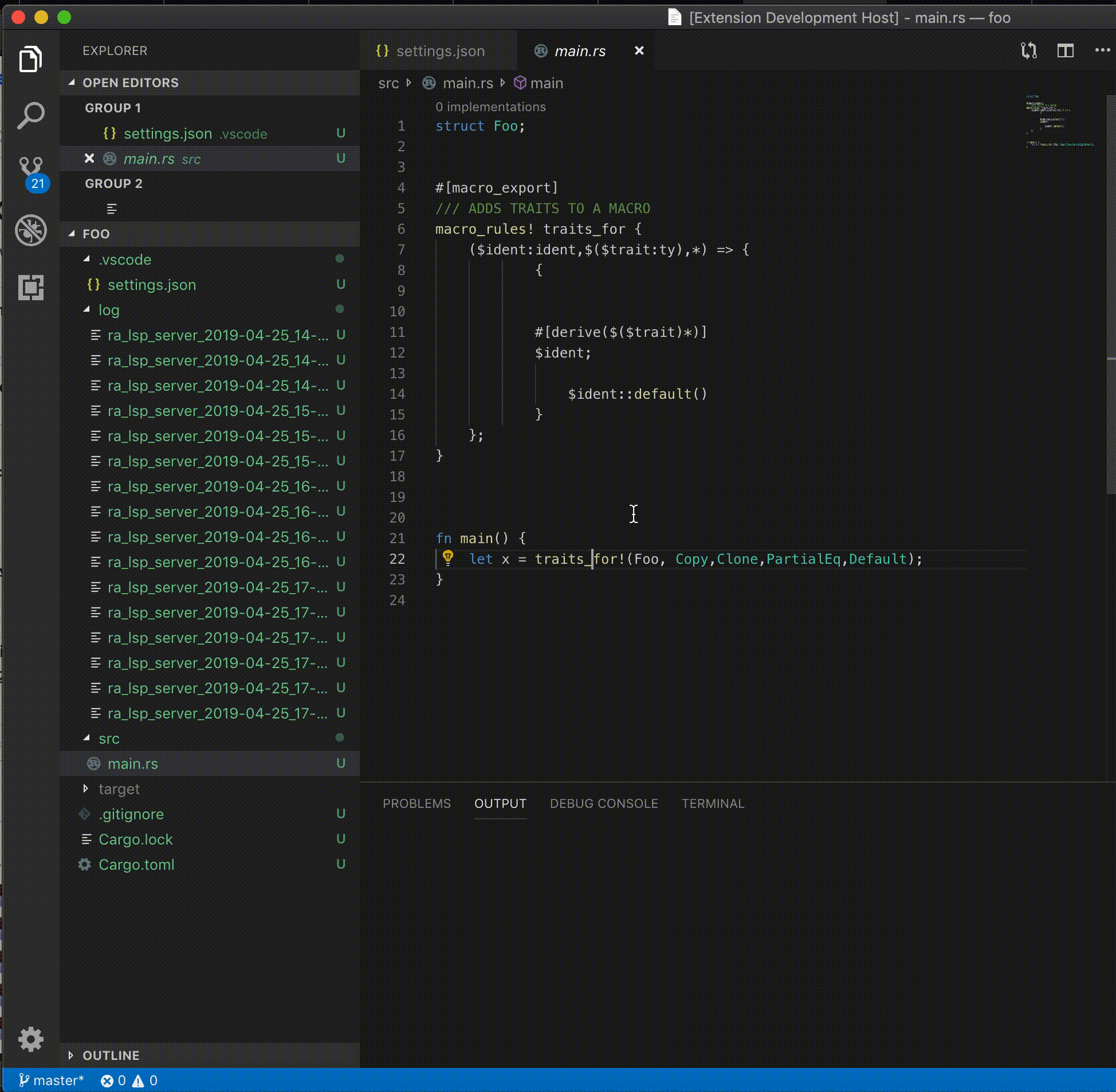Very simple approach: For each identifier, set the hash of the range
where it's defined as its 'id' and use it in the VSCode extension to
generate unique colors.
Thus, the generated colors are per-file. They are also quite fragile,
and I'm not entirely sure why. Looks like we need to make sure the
same ranges aren't overwritten by a later request?
1208: [WIP] Goto for Macro's r=matklad a=Lapz
Adds goto definition for macros. Currently only works for macros in the current crate ~~otherwise it panics~~. Proper macro resolution needs to be added for it to resolve macros in other crates.
Todo
- [X] Allow goto from macro calls
- [X] Fix panics
- [x] Add tests

Co-authored-by: Lenard Pratt <l3np27@gmail.com>
1213: Make lexer produce only single character puncts r=matklad a=edwin0cheng
As discussed in Zulip, this PR change `lexer` to produce only single char punct.
* Remove producing `DOTDOTDOT, DOTDOTEQ, DOTDOT, COLONCOLON, EQEQ, FAT_ARROW, NEQ, THIN_ARROW` in lexer.
* Add required code in parser to make sure everythings works fine.
* Change some tests (Mainly because the `ast::token_tree` is different)
Note: i think the use of `COLON` in rust is too overloaded :)
Co-authored-by: Edwin Cheng <edwin0cheng@gmail.com>
E.g. in
```
let foo = 1u32;
if true {
<|>foo;
}
```
the hover shows `()`, the type of the whole if expression, instead of the more
sensible `u32`. The reason for this was that the search for an expression was
slightly left-biased: When on the edge between two tokens, it first looked at
all ancestors of the left token and then of the right token. Instead merge the
ancestors in ascending order, so that we get the smaller of the two possible
expressions.